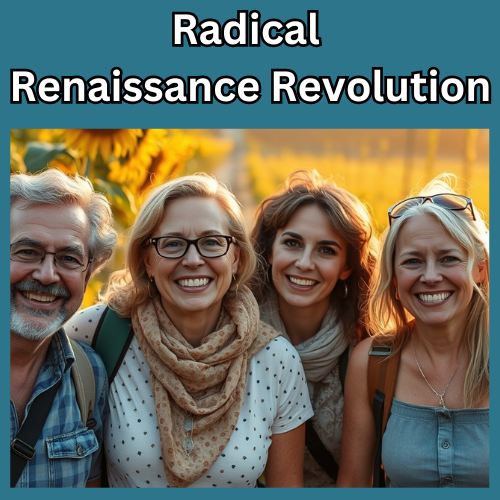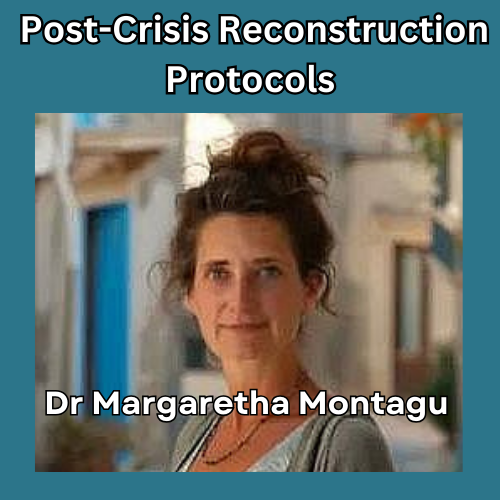Walking is one of the simplest, most accessible forms of exercise, yet research shows its benefits for both mental and physical health are profound, especially when it comes to long-distance walks such as the Camino de Santiago.
A Symphony of Steps: Walking and Well-being
It’s easy to dismiss walking as just a way to get from point A to B, but science reveals a much deeper connection to our well-being. Consider this:
- A University of Tennessee study found that women who walked regularly had significantly less body fat. This isn’t just about aesthetics; reduced body fat is linked to lower risks of heart disease, type 2 diabetes, and certain cancers.
- Research from the Harvard School of Public Health showed that women who walked 30 minutes daily could reduce their risk of stroke by 20%, and this increased to 40% when they walked at a brisker pace. It’s like a gentle tune-up for your cardiovascular system with every step.
- A study of post-menopausal women discovered that 30 minutes of daily walking reduced their risk of hip fractures by a remarkable 40%. Walking, a weight-bearing exercise, encourages bone density, a vital aspect of long-term health and vitality.
- Beyond the physical, California State University, Long Beach, found a direct correlation between the number of steps people took in a day and their mood. More steps often meant a better mood, likely due to the release of endorphins, those natural mood boosters our bodies produce.
The Camino, at its heart, is a walking pilgrimage. Each step you take isn’t just moving you geographically; it’s a step towards better physical health, a stronger heart, more resilient bones, and a brighter emotional landscape. It’s a testament to the profound connection between movement and well-being.
The Stillness Within: Mindfulness and Mental Resilience
Mindfulness, the practice of paying attention to the present moment without judgment, offers a powerful antidote to the stresses of modern life.
- Numerous studies have shown that mindfulness-based approaches can significantly reduce symptoms of anxiety and depression. By training our minds to focus on the “now,” we create space between our thoughts and reactions, lessening the grip of worry and rumination.
- Research has indicated that mindfulness meditation can lead to increased working memory capacity and improved ability to sustain attention. This mental clarity can enhance our problem-solving skills and overall cognitive function.
- Interestingly, a study involving a military group during a high-stress period before deployment found that those who practised mindfulness meditation experienced increased working memory capacity, while the non-meditating group saw a decline. This highlights mindfulness as a tool for building mental resilience even in challenging circumstances.
- Mindfulness has also been shown to decrease emotional reactivity, allowing us to navigate difficult emotions with greater calm and equanimity.
The Camino naturally fosters mindfulness. The rhythm of walking, the beauty of the surroundings, and the stripping away of daily distractions create an environment ripe for present moment awareness. Integrating mindful practices into your Camino journey, and beyond, can cultivate a deep sense of inner peace and resilience.
Nature’s Embrace: The Restorative Power of the Outdoors
The natural world holds a profound power to heal and rejuvenate our minds and bodies.
- The University of Edinburgh reviewed 17 studies and found that walking in nature significantly improved people’s moods, reducing feelings of stress and anxiety while boosting positive emotions. It’s as if nature offers a balm for the soul.
- Even a short 20-minute immersion in nature has been shown to improve concentration and cognitive function. The natural world provides a different kind of stimulation than our often over-stimulating urban environments, allowing our minds to restore and refocus.
- Research suggests that exercising in nature leads to greater health benefits and an increased likelihood of repeating physical activity compared to indoor exercise. There’s an inherent motivation and joy in moving within a natural setting.
- Studies have found that spending time in nature can reduce blood pressure, lower cholesterol, and improve immune function. It’s not just a mental escape; it’s a physiological reset.
The Camino immerses you in diverse natural landscapes, from rolling hills to quiet forests. This constant connection with nature isn’t just a scenic backdrop; it actively contributes to your mental and physical well-being, fostering a sense of calm, reducing stress, and enhancing your overall experience.
The Alchemy of Challenge: Psychological Growth Through Journey
Completing a significant challenge, like the Camino de Santiago, has profound psychological effects.
- Research on post-traumatic growth has shown that individuals who overcome adversity often report a deeper sense of self, a greater appreciation for life, stronger relationships, and a heightened sense of purpose. The Camino, with its physical and mental demands, can be a catalyst for this kind of growth.
- The American Psychological Association highlights resilience as a key outcome of navigating difficult experiences. Completing a challenging journey like the Camino builds mental toughness, problem-solving skills, and a belief in one’s own capabilities.
- Studies on resilience emphasise the importance of making meaning from challenging experiences. The Camino often provides ample opportunities for introspection and reflection, allowing pilgrims to gain new perspectives on their lives and challenges.
- The social support often found on the Camino, the camaraderie among pilgrims, also plays a crucial role in psychological well-being during and after the journey. Sharing the experience and overcoming challenges together fosters a strong sense of connection and belonging.
The Camino is more than just a long walk; it’s a crucible for personal growth. The challenges you overcome – the physical exertion, the mental fortitude required, the emotional ups and downs – forge a stronger, more resilient self. The triumph you feel at the end is not just the satisfaction of completion, but the profound realisation of your own strength and capacity for transformation.
The Camino is not just a physical endeavour; it’s a holistic experience that nourishes the mind, body, and soul.
Physical Health Benefits
- Cardiovascular Fitness: Regular walking, particularly over long distances, significantly boosts cardiovascular health. It lowers bad cholesterol, raises good cholesterol, and reduces the risk of heart disease and stroke.
- Muscle and Bone Strength: Walking strengthens leg, core, and back muscles, and the weight-bearing nature of the activity helps improve bone density, reducing the risk of osteoporosis. Navigating varied terrain also enhances balance and flexibility.
- Blood Pressure, Blood Sugar, and Weight Control: Walking helps lower blood pressure, improves blood sugar regulation, and supports healthy weight management, all of which are crucial for preventing chronic diseases like diabetes.
- Improved Circulation and Recovery: Long walks increase blood flow, open capillaries, and help flush out lactic acid, aiding muscle recovery and reducing soreness.
Mental Health Benefits
- Reduced Stress and Anxiety: Walking, especially in nature, is a proven stress reliever. The rhythmic movement, exposure to fresh air, and natural surroundings lower cortisol (the stress hormone), leading to a calmer mind and reduced anxiety.
- Enhanced Mood and Emotional Well-being: Physical activity releases endorphins-“feel-good” hormones-that combat symptoms of depression and anxiety. Studies show that long-distance walking is consistently linked to reduced emotional distress and improved mood.
- Improved Sleep Quality: The physical exertion of walking helps establish a healthy sleep rhythm, leading to deeper, more restful sleep and a calmer mind at night.
- Cognitive Benefits: Walking improves alertness, memory, and problem-solving abilities. It provides a mental “reset,” allowing for better focus and creativity.
- Opportunities for Reflection and Self-Discovery: Long-distance walks, such as the Camino, offer extended periods of solitude and reflection. This “liminal” space-removed from daily distractions-enables deep self-exploration, clarity on life decisions, and personal transformation. Many walkers report a greater sense of capability, emotional processing, and even experiences similar to therapeutic counselling.
Social and Emotional Connections
- Community and Belonging: Shared walking journeys foster meaningful connections. On routes like the Camino, walkers form deep friendships and find support in a community of like-minded individuals, which enhances emotional resilience and combats loneliness.
- Therapeutic Conversations: Interacting with fellow walkers and sharing personal stories can be healing, providing a sense of understanding and mutual support.
Why Long-Distance Walking Is Especially Powerful
Long-distance walks amplify these benefits by:
- Providing extended time away from digital distractions and daily stressors, allowing for genuine mindfulness and presence.
- Encouraging perseverance and a sense of achievement, which boosts self-esteem and confidence.
- Combining the restorative effects of nature with the physical benefits of exercise, leading to greater overall well-being.
Key Research Findings
- A systematic review of 26 studies found that long-distance walking is positively related to mental health, particularly in reducing emotional distress.
- Qualitative research highlights that long-distance walking can create a “transformational space” for reflection and self-growth, with effects comparable to professional counselling in some cases.
- Walkers consistently report feeling better, more alert, and having a more positive outlook on life, with improvements in both physical and psychological health.
Summary Table: Key Benefits of Long-Distance Walking
| Benefit Area | Key Effects |
|---|---|
| Physical Health | Improved heart/lung fitness, muscle/bone strength, blood pressure, weight control |
| Mental Health | Reduced stress/anxiety, improved mood, better sleep, enhanced cognition |
| Emotional/Social | Greater self-reflection, sense of achievement, meaningful connections, therapeutic support |
Walking-especially on long-distance journeys like the Camino-offers a holistic boost to mind and body, supporting both immediate well-being and long-term health. Whether you seek physical fitness, mental clarity, or personal transformation, the evidence is clear: putting one foot in front of the other can be life-changing.

10 Powerful Life Lessons Learned While Walking the Camino de Santiago – a free guide filled with 10 not just “quaint anecdotes” or Instagram-worthy moments (though there are plenty of those) but real transformations from real people who walked the same insight-giving trail you might want to walk one day walk – Subscribe to the LifeQuake Vignettes newsletter to Download the Guide

Ready to start again, stronger than ever before? This quiz will help you find out. It is not just about measuring where you are right now; it’s about shining a light on the areas of your life that feel meaningful, as well as those that might need attention. It’s an opportunity to reflect, recalibrate, and take steps toward a life that’s not only successful but profoundly fulfilling. Take The Quiz

“I am an experienced medical doctor – MBChB, MRCGP, NLP master pract cert, Transformational Life Coach (dip.) Life Story Coach (cert.) Counselling (cert.) Med Hypnotherapy (dip.) and EAGALA (cert.) I may have an impressive number of letters after my name, and more than three decades of professional experience, but what qualifies me to excel at what I do is my intuitive understanding of my clients’ difficulties and my extensive personal experience of managing major life changes using strategies I developed over many years” Dr M Montagu

